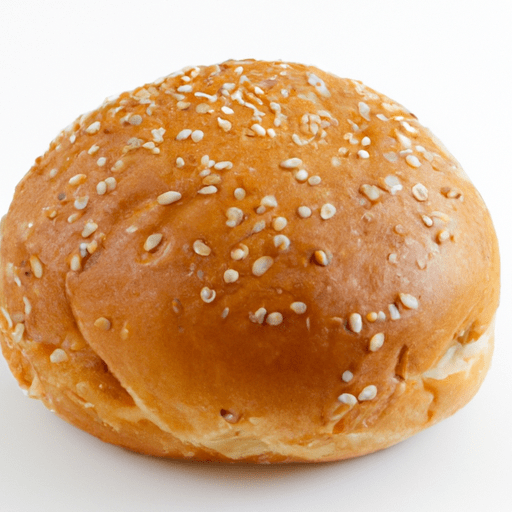Discover the Taste and Benefits of Gluten-Free Hamburger Rolls
Gluten-free diets have become incredibly popular as more and more people are recognizing the benefits of eliminating gluten from their meals. From those with gluten intolerances or sensitivities to individuals looking for a healthier lifestyle, the demand for gluten-free options continues to rise. In the world of burgers, a key element to consider is the bun. Today, we’ll dive into the world of gluten-free hamburger rolls – delicious alternatives that cater to various dietary needs while maintaining incredible taste and texture.
Unveiling the Taste
One might assume that gluten-free hamburger rolls would lack the flavor and texture of their traditional counterparts. However, innovative recipes and improved ingredients have elevated gluten-free buns to new heights. These rolls boast a light and airy texture, reminiscent of classic burger buns, with a subtle hint of sweetness. The mildly nutty and slightly tangy flavors meld perfectly with the savory elements of a burger, creating a harmonious balance that will delight your taste buds. Even if you don’t follow a gluten-free diet, these rolls are sure to impress.
Versatility at Its Best
Gluten-free hamburger rolls offer tremendous flexibility in the kitchen and can be used in a variety of dishes. Of course, their main purpose is to hold a juicy burger patty, ensuring that each bite is a mouthwatering experience. However, these rolls also make fantastic bases for sliders, sandwiches, and even as bread for a flavorful panini. The options are limitless; all you need is a bit of creativity to explore the vast palette of flavors they can accompany.
Nutritional Value
Choosing gluten-free hamburger rolls not only caters to dietary restrictions, but it can also offer several nutritional benefits. While nutritional values may vary depending on the specific recipe or brand, gluten-free hamburger rolls are often made from a combination of nutrient-rich flours like rice flour, almond flour, or tapioca flour. They tend to be higher in fiber and protein than traditional buns, providing a more satisfying and nourishing option. Additionally, these rolls often contain a range of vitamins and minerals that contribute to a well-rounded diet.
A Journey Through History
The origins of gluten-free hamburger rolls can be traced back to the rise of the gluten-free movement in recent years. As more individuals became aware of their gluten sensitivities or chose to adopt a gluten-free lifestyle, the demand for alternatives grew exponentially. Food enthusiasts, chefs, and bakers set out on a journey to create gluten-free versions of all our beloved dishes, including the iconic hamburger. Through countless iterations and kitchen experiments, the gluten-free hamburger roll was born, enabling countless individuals to enjoy burgers without compromise.
Elevate Your Burger Experience
If you’ve been hesitant about trying gluten-free hamburger rolls, now is the time to take the plunge. These delectable buns offer a remarkable taste and texture, are incredibly versatile in the kitchen, and provide considerable nutritional value. Whether you have a gluten sensitivity or simply enjoy exploring new culinary horizons, gluten-free hamburger rolls are a fantastic addition to any burger-lover’s repertoire. So fire up the grill, grab your favorite toppings, and get ready to elevate your burger experience to a whole new level!
Gluten-Free Hamburger Rolls
Origin: Gluten-free hamburger rolls are a variation of traditional wheat-based hamburger rolls. The concept of gluten-free baking emerged as a solution for individuals with celiac disease or gluten intolerance, who have adverse reactions to gluten, a protein found in wheat, rye, and barley. Over time, gluten-free alternatives for various baked goods, including hamburger rolls, have become widely available.
Common Uses: Gluten-free hamburger rolls are specifically designed to be a substitute for regular wheat-based hamburger buns. They are used to create gluten-free hamburgers and sandwiches, offering an alternative for individuals following a gluten-free diet.
Nutritional Benefits: Gluten-free hamburger rolls are often made using alternative flours, such as rice flour, corn flour, almond flour, or a mixture of several gluten-free flours. As a result, they are free from gluten but may have different nutritional profiles compared to traditional wheat-based rolls. Nutritional content can vary based on the specific ingredients used, but gluten-free hamburger rolls can be a source of carbohydrates, fiber, and certain nutrients depending on their composition.
Unique Properties: Gluten-free hamburger rolls are characterized by their ability to hold together and provide a sturdy base for sandwiches, even without gluten. Various ingredients, such as xanthan gum or psyllium husk, may be added to gluten-free recipes to improve texture and binding properties. These rolls are generally denser and may have a slightly different taste and texture compared to wheat-based hamburger rolls.
Historical Significance: The demand for gluten-free hamburger rolls and other gluten-free alternatives has risen significantly in recent years, driven by increased awareness and diagnosis of celiac disease and gluten intolerance. This has led to advancements in gluten-free baking techniques and the development of more accessible and palatable gluten-free products, including hamburger rolls.




Use the share button below if you liked it.
It makes me smile, when I see it.